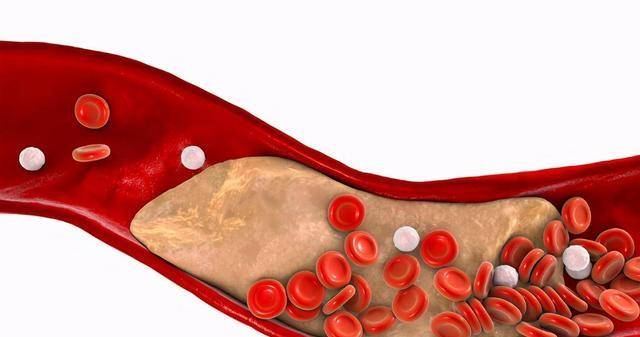Introduction: With the continuous improvement and development of people’s living standards, everyone is facing three issues that are more likely to cause distress, and these problems are not new but have become a concern for many.
In our daily lives, an increasing number of people are affected by the three highs, among which the number of patients with high blood lipids is on the rise annually. According to research, there are approximately 160 million high blood lipid patients in China.
When a person has high blood lipid levels, it generally does not bring significant negative impacts or troubles to the body. However, if the problem of high blood lipids persists for a long time, complications may arise, even posing a risk to one’s life.
For patients with high blood lipids, not only do they need to follow medical advice for proper medication, but they also need to maintain stability and control through daily lifestyle adjustments.
Controlling blood lipid levels can effectively reduce the harm of high blood lipids to various tissues and organs, avoiding potential health risks and troubles. To better regulate blood lipids, individuals must take correct and reasonable measures.
Under normal circumstances, the diagnostic criteria for high blood lipids are 5.17 mmol/L, with high-density lipoprotein cholesterol needing to be above 0.9 mmol/L, and low-density lipoprotein cholesterol levels needing to be below 3.36 mmol/L.
If the blood lipid indicators exceed these values, it will be diagnosed as having high blood lipids.
After diagnosing high blood lipids, proper measures need to be taken for corresponding active treatment. During treatment, not only should medical advice be sought and medication taken appropriately, but also proper exercise and a light diet should be maintained to effectively stabilize and control blood lipid levels.
Calf Cramps
Abnormal blood lipid levels can lead to the accumulation of cholesterol in the body, which can easily deposit on the blood vessel walls and in the muscles and bones.
As a result, patients are prone to experiencing calf cramps in daily life, especially nocturnal calf cramps, which can be more noticeable.
Skin Abnormalities
If you notice small yellowish rashes on your skin recently, be cautious as this may indicate high blood lipid levels.
Initially, the rashes are likely to be orange-yellow, and as the level rises, they may turn yellow-brown and multiply.
Loss of Vision
Many individuals with elevated blood lipid levels may experience blurry vision or even loss of vision. If you experience vision loss, pay close attention as it could be related to high blood lipids.
This could be due to the gradual increase in lipid levels, slowing blood flow, leading to temporary oxygen deficiency and retinal ischemia, which can affect vision.
Tinnitus
When high blood lipid levels are present, it indicates that the cardiovascular system has been affected to some extent. Generally, high blood lipids can lead to atherosclerosis.
At this point, it can also affect the brain, narrowing the blood vessels around the ears, leading to issues like dizziness and tinnitus.
Milk
Drinking milk appropriately in daily life not only enhances physical fitness but also alleviates fatigue and improves sleep quality.
Milk is rich in protein, amino acids, vitamins, and peptides, suitable for enhancing physical fitness and improving weak physical conditions.
Milk contains abundant methyloctadecadienoic acid and hydroxyl groups, which can inhibit cholesterol synthase activity, thereby reducing cholesterol synthesis rates. Drinking milk for breakfast can help lower personal blood lipid levels.
Celery
Celery is rich in water content and dietary fiber, promoting gastrointestinal motility to reduce the risk of constipation and other issues.
In addition, celery contains abundant vitamins B1, A, C, B2, P, and trace elements.
Eating greens regularly can effectively reduce cholesterol absorption, accelerate gastrointestinal motility, help food move swiftly through the intestines, and reduce the absorption of oily foods.
Tofu
Tofu contains abundant minerals, high-quality protein, lecithin, and other nutrients, effectively inhibiting cholesterol absorption and reducing harmful substances accumulated in the blood vessel walls.
Thus, it can effectively lower cholesterol and blood lipid levels, being suitable for consumption by everyone as it is made from soybeans.
The high-quality protein and certain plant compounds in tofu can enhance the body’s disease resistance, promote beauty, anti-aging, and combat against body aging.
Oats
Research in the United States has found that consuming oats daily can reduce high-density lipoprotein cholesterol levels by over 10% within 8 weeks.
Packages of oats sold in the US often explicitly state that consuming oats can effectively lower high blood lipids, heart disease, and related issues.
Therefore, if you are unsure of what staple food to eat in the morning, you can choose oats, not only to enhance satiety and aid in weight loss but also to help lower blood lipid levels.
Balanced Diet
If you want to better reduce blood lipid levels and prevent complications associated with high blood lipids, you must maintain a balanced diet in your daily meals.
Eat fresh fruits and vegetables regularly and reduce the intake of high-fat foods to effectively regulate blood lipid levels and reduce the occurrence of certain complications.
Drink Plenty of Water
Water is known as the source of life, replenishing the body’s hydration, lowering blood lipid levels, promoting toxin and waste elimination, and aiding in beauty and skin care.
For good health, it is recommended to drink at least 2000 milliliters of water daily. However, if you have certain heart conditions, you may need to reduce water intake under a doctor’s guidance.
It is best to have breakfast between 7:00 and 9:00 under normal circumstances.
During this time, the digestive system is more active, enhancing food digestion and absorption. Breakfast is crucial and its importance in maintaining blood lipid levels and normal organ functions cannot be understated.
If breakfast is not consumed properly, it can affect blood lipid levels, disrupt organ functions, and increase the risk of chronic conditions.


